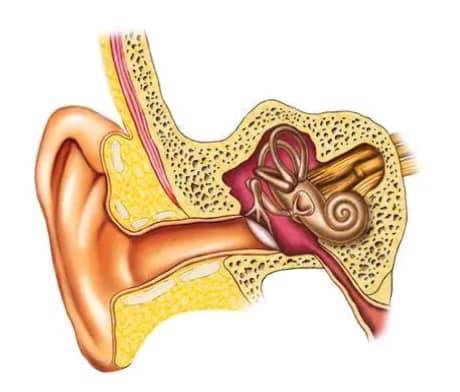Meningitis definition
Meningitis is an inflammation of the "meninges" that line the brain and spinal column. A virus, bacteria, or fungus may be the culprit behind the inflammation. Because it attacks quickly and violently, bacterial meningitis is particularly dangerous. The person may be beyond help by the time they realize what is happening. The patient may experience lifelong disabilities such as amputation, deafness, blindness, and mental retardation despite treatment.
 |
| Meningitis |
What kinds of meningitis are there?
An infection of the fluid surrounding the brain and spinal cord, known as meningitis, results in swelling. It can be summarized as meningeal inflammation. The three membranes surrounding the brain and spinal cord are called the meninges. Bacterial and viral infections are the most common causes of meningitis. There are cancer, drug allergies, chemical sensitivity, and others. Both bacterial and viral meningitis are contagious and can be spread by sneezing or coughing. Viral, bacterial, and fungal meningitis are the three different forms. The most common type of meningitis is viral, while bacterial meningitis is considered the most dangerous.
Meningitis Virus
Of the three, it is the Meningitis kind that occurs most frequently. Generally speaking, it is less dangerous than bacterial meningitis. Sometimes a patient recovers on their own, without any medical intervention. However, this kind of meningitis can have catastrophic consequences for people who have a weakened immune system.
 |
| Symptoms |
Viral diseases such as non-polio enteroviruses, measles, mumps, and others are major causes of viral meningitis. Contact with an infected person can result in the spread of the disease. Few individuals do, however, become infected through touch.
Symptoms
Viral meningitis frequently causes symptoms like fever, headache, stiff neck, nausea, and vomiting. Babies are also affected, and common signs include irritability, poor feeding, and fever.
Treatment
For this particular kind of meningitis, there is typically no special treatment. Patients typically recover fully in 7–10 days. If you contract influenza, you can take antiviral medications.
Prevention
Do the following to stop viral meningitis from spreading:
Get Clean Hands
Keeping a Safe Distance
Wipe down commonly touched areas
Infectious Meningitis
 |
| Infectious Meningitis |
The transmission of its causes
This type of meningitis has different causes in different age groups. In children and infants, group B streptococcus, S. pneumonia, Listeria monocytogenes, and Escherichia coli can cause meningitis. In adolescents and adults, N. meningitides and S. pneumonia can do the same. In children, the mother can transmit the bacteria, while in adults, throat saliva can.
Symptoms
The reasons and symptoms vary depending on the age group, too. Doctors examine young infants and search for a soft area on the head. Fever, nausea, vomiting, homophobia, etc. in adults. Seizures and comas are later signs.
Treatment
Doctors employ a variety of medications to treat bacterial meningitis. Cephalosporins, Claforan (cefotaxime), and Rocephin are a few of them (ceftriaxone).
Prevention
The best method for stopping the spread of germs is vaccination. Meningococcal vaccinations, Pneumococcal vaccines, and Hib vaccines are the three different vaccine types.
Yeast Meningitis
Among the three, it is the rarest kind of meningitis. It spreads to the brain and spinal cord and is brought on by a fungus.
Transmission and causes
Typically, fungi like Cryptococcus, Histoplasma, Blastomyces, Coccidioides, and Candida are the culprits behind fungal meningitis. If someone breathes in fungus spores, these fungi can spread to them. And if the infection moves from the lungs to the neurological system, a person will develop fungal meningitis. It cannot, however, spread from person to person.
Symptoms
People who have fungal meningitis frequently exhibit symptoms like fever, stiff neck, nausea, disorientation, etc.
Treatment
Long-term regimens of powerful antifungal medicines are used to treat fungus-related meningitis. The immune system of the patient has a direct impact on how long the medical procedure takes. Because of this, treatment takes longer for weaker persons and vice versa.
Prevention
A lot of bird and bat droppings should be avoided by those with weakened immune systems, as well as dusty activities.
Why kills people from meningitis so quickly?
The terrible effects of meningitis are thought to be caused by the body's natural inflammatory response to an infection.
The immune system reacts to bacteria or viruses entering the body by sending white blood cells and specific proteins to remove the infectious particles. A tremendous amount of fluid is also attracted to the infected location by both the proteins and the white cells.
The relatively moderate inflammatory response brought on by viral meningitis makes it less severe than bacterial meningitis and less fatal. On the other hand, bacterial meningitis results in a considerably more dramatic inflammatory response, which contributes to its more serious consequences and mortality.
In the case of meningitis, everything is happening in a small area with little room for extra material to work. Fluids, proteins, and cells can enter the space relatively quickly, but cannot escape due to the limited space. As a result, the brain and spinal cord are overstressed, which destroys nerve tissue and causes problems such as deafness, blindness, seizures, and even death.
Antibiotics are the mainstay of treatment for bacterial meningitis because they essentially stop the bacteria from growing while the body takes over the task of eliminating the existing germs. However, some antibiotics actually cause the bacteria to fragment, which makes the inflammatory reaction worse (especially with certain types of bacteria). As a result, when a patient develops meningitis, doctors first prescribe steroids (an anti-inflammatory).
What are the treatments for it?
 |
| anti-tubercular drugs |
1. Meningitis caused by bacteria-sensitive antibiotics.
2. Antiviral medicines can treat viral meningitis.
3. Using anti-tubercular drugs to treat tubercular meningitis in accordance with WHO recommendations
Thank you, and if you have any questions about meningitis, just leave a remark. Or, if you think it's interesting and people should know about it, you can spread the word.

.jpg)
.jpg)



